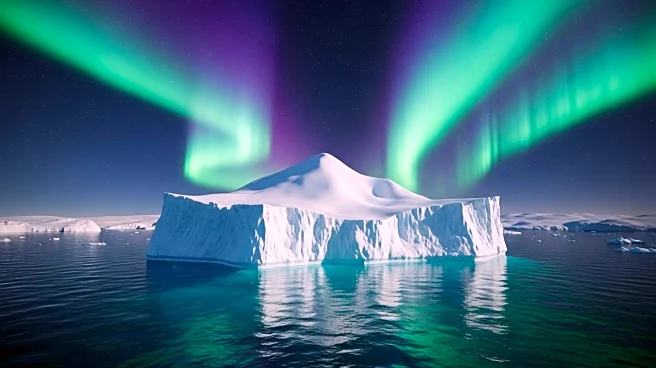What's Happening?
Greenland's Prime Minister Jens-Frederik Nielsen addressed the European Parliament, expressing gratitude to the European Union for its longstanding partnership and support. Nielsen emphasized the need for EU investment in Greenland's mineral resources, renewable energy, and infrastructure, including airports and internet services. He highlighted the challenges posed by climate change and the importance of cooperation with like-minded countries. Nielsen's speech comes in the context of Greenland's historical ties with Denmark and recent geopolitical interest in the Arctic region, notably President Trump's previous interest in acquiring Greenland.
Why It's Important?
Greenland's appeal for EU investment underscores the strategic importance of the Arctic region, particularly in terms of mineral resources and renewable energy potential. As climate change impacts the Arctic, Greenland's resources become increasingly accessible, attracting global interest. The EU's involvement could strengthen its geopolitical influence in the Arctic, counterbalancing other powers like the United States. For Greenland, EU investment could drive economic development, enhance infrastructure, and support sustainable energy initiatives, benefiting its economy and society.
What's Next?
Greenland's call for investment may prompt the EU to consider strategic partnerships and funding initiatives to support Greenland's development goals. This could involve negotiations on specific projects in mining, energy, and telecommunications. The EU's response will likely influence Greenland's economic trajectory and its international relations, particularly with the U.S. and Denmark. Stakeholders will be watching for any formal agreements or funding commitments that may arise from this appeal.
Beyond the Headlines
Greenland's situation highlights broader themes of sovereignty, resource management, and environmental stewardship in the Arctic. The ethical implications of exploiting natural resources in a fragile ecosystem are significant, raising questions about sustainable development and indigenous rights. Additionally, the geopolitical dynamics of Arctic governance are complex, involving multiple nations with competing interests. Greenland's strategic positioning could lead to increased diplomatic engagement and potential conflicts over resource access and environmental protection.








